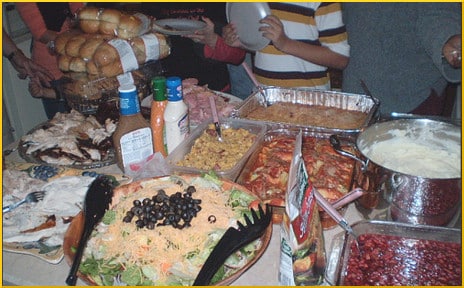 Yesterday, Childhood Obesity News looked at only a couple of the ideas espoused by Dr. Billi Gordon. Thanks to his Psychology Today column “Obesely Speaking,” he was named one of the “30 Most Influential Neuroscientists Alive Today” by a website that specializes in helping people find the best way to get a psychology degree online. However much or little credence one might place in such an endorsement, the point is that people do listen to Gordon and it is easy to see why. We recognize the cold, unvarnished truth when we hear it.
Yesterday, Childhood Obesity News looked at only a couple of the ideas espoused by Dr. Billi Gordon. Thanks to his Psychology Today column “Obesely Speaking,” he was named one of the “30 Most Influential Neuroscientists Alive Today” by a website that specializes in helping people find the best way to get a psychology degree online. However much or little credence one might place in such an endorsement, the point is that people do listen to Gordon and it is easy to see why. We recognize the cold, unvarnished truth when we hear it.
Gordon remarks on the tendency of an overeater to give up at Halloween and forget about healthy eating until after the New Year. About Thanksgiving he says:
It is our favorite day because we love food, and it is a food fest. It is not our favorite day of the year because we are slaves to our food addiction and it brings us face to face with our master and our chains. Not only that, it does it publicly or in front of family. The truth is we do not want others to see our ugly relationship with food, nor do we want to dwell on our addiction’s darker side.
Gordon’s neurobiological perspective on compulsive holiday binge eating includes recognition of how environmental cues form through learned associations. The connections come in through our eyes, ears, noses, mouths, and skins. The olfactory sense is major. Gordon says:
…studies have shown that humans associate specific food smells with specific social, and family situations as well as with social class. The brain biases towards the smells it associates with its family, its friends, and its social class.
The smell of shoe polish is a reminder of how Uncle Zeke would get all spiffed up for Christmas, and make his special non-alcoholic eggnog for the kids, that you always drank by the gallon. We hear carols and remember the tastes of Grandma’s 30 different varieties of Christmas cookies. Grandma’s gone now, but Auntie June still makes 10 of those varieties, and there they are on the table. It doesn’t really matter if the memories are good or bad, because either kind can trigger the emotional chain reaction that ends in a binge.
Fitting in at the Feast
Even at the best of times, Gordon says,
Compulsive overeaters are prone to misread social cues, misinterpret situations, and have inappropriate reactions, resulting in downward synergies.
On some level even the most independent soul has a latent desire to fit in. Some realize they can never tolerate their birth families and look for others to fit in with. Most of us struggle with the stresses of family holidays. One battle is resisting family members who urge us to eat more. They do it on their own behalf, as in, “What’s wrong, I didn’t whip the potatoes soft enough for you?” They do it by proxy, as in “Take some gravy. Don’t hurt your mother’s feelings.”
The “just one bite” pushers are the worst. They simply don’t get it. Substance dependence doesn’t work like that, and because addiction is involved, holiday foods are more of a threat to the compulsive overeater than to anyone who doesn’t have that problem. Gordon writes:
For example, a single morsel of high-sugar and high-fat palatable food triggers binge eating in rats. Likewise, it only takes that “one bite can’t hurt you” of a rich dessert to trigger binge eating in compulsive overeaters.
So, in essence, for compulsive overeaters, rich, calorie-dense holiday foods are not holiday treats for us. They are crack, and we have to treat it accordingly. “One little bite” will seriously harm us, just like one little line will harm a cocaine addict.
A perceived necessity to overeat is especially problematic for someone who doesn’t do alcohol. The relatives may grudgingly accept a refusal to drink, even if they mutter about it out in the garage. But subsequently it is even more impossible to turn down any morsel of food, because eating it offers the person another chance to demonstrate that he or she is one of the tribe. Plenteous, ostentatious consumption can seem obligatory for any number of reasons, both conscious and unconscious. It’s all part of how, as Gordon says:
Families hand suffering from generation to generation like passing dinner rolls around at Thanksgiving.
Your responses and feedback are welcome!
Source: “Thanksgiving: Danger in the Brain,” PsychologyToday.com, 11/24/24
Source: “Christmas Cookie Blue,” PsychologyToday, 12/06/13
Source: “The Old Brain Says “Please Come Home for Christmas”,” PsychologyToday.com, 12/20/13
Source: “We Break Our Own Hearts,” PsychologyToday.com, 04/07/15
Image by EvelynGiggles

 FAQs and Media Requests:
FAQs and Media Requests: 











